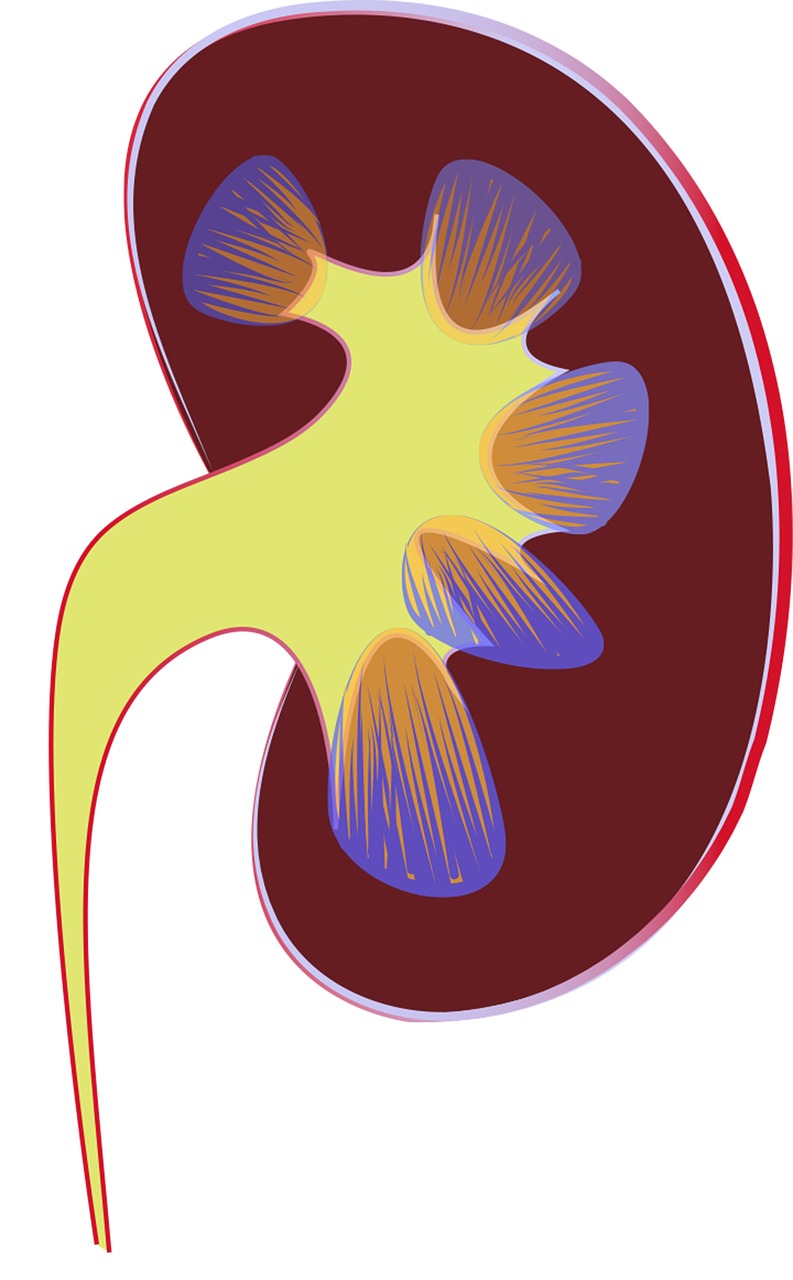Heart & Cardiovascular
Chronic Kidney Disease (CKD): What are its Symptoms, Causes, and Treatment?
By S.I. (staff writer) , published on August 01, 2023

Medicine Telehealth Health kidney electrolytes
What is Chronic Kidney Disease?
Chronic kidney disease (CKD) is a progressive and irreversible condition in which the kidneys gradually lose their ability to function properly. This disease affects millions of people worldwide and can lead to significant health complications if left untreated.
Causes of Chronic Kidney Disease:
Chronic kidney disease can be caused by various factors, including:
- Diabetes: Diabetes is the leading cause of CKD. Persistent high blood sugar levels can damage the blood vessels and tiny filters in the kidneys, impairing their ability to filter waste and excess fluids from the body. [1]
- Hypertension: Uncontrolled high blood pressure can strain the blood vessels in the kidneys, leading to their gradual deterioration and the development of CKD.
- Glomerulonephritis: This condition refers to inflammation of the kidney's filtering units, known as glomeruli. Prolonged or recurrent inflammation can cause permanent damage to the kidneys.
- Polycystic Kidney Disease: An inherited condition characterized by the growth of cysts in the kidneys, polycystic kidney disease can progressively impair kidney function over time.
- Other Factors: Other factors such as recurrent kidney infections, urinary tract obstructions, and certain medications or toxins can also contribute to the development of CKD.
Symptoms of Chronic Kidney Disease:
In the early stages, chronic kidney disease may not present noticeable symptoms. As the condition progresses, common signs and symptoms may include:
- Fatigue: Persistent fatigue and weakness, often resulting from anaemia caused by a decrease in red blood cell production. [2]
- Fluid Retention: Swelling in the legs, ankles, feet, or hands due to the kidneys' reduced ability to remove excess fluid from the body.
- Changes in Urination: Increased frequency of urination, especially during the night, or decreased urine output. Urine may appear foamy or contain blood.
- Electrolyte Imbalance: Imbalances in electrolytes such as potassium, calcium, and phosphorus can lead to muscle cramps, bone pain, and abnormal heart rhythms.
- Elevated Blood Pressure: Chronic kidney disease can contribute to hypertension, further exacerbating kidney damage.
Treatment of Chronic Kidney Disease:
The treatment of chronic kidney disease aims to slow its progression, manage complications, and preserve kidney function [3]:
Common approaches include:
- Lifestyle Changes: Adopting a healthy lifestyle is crucial. This involves a balanced diet low in sodium and phosphorus, blood sugar control, quitting smoking, regular exercise, and weight management.
- Blood Pressure Control: Managing hypertension is vital in slowing kidney damage. Medications like ACE inhibitors or ARBs may be prescribed to lower blood pressure and protect the kidneys.
- Medication: Prescribed medications address specific symptoms or complications like anaemia or mineral and bone disorders associated with CKD.
- Dialysis: In advanced stages when the kidneys can no longer effectively remove waste and excess fluid, dialysis may be necessary. This procedure filters blood artificially to remove waste and maintain fluid balance [4].
- Kidney Transplantation: Eligible patients may consider kidney transplantation. A healthy kidney from a compatible donor is surgically implanted to replace non-functioning kidneys.
References
- https://www.sciencedirect.com/science/article/abs/pii/S037851221100394X
- https://journals.lww.com/cjasn/pages/articleviewer.aspx?year=2021&issue=09000&article=00024&type=Fulltext
- https://www.sciencedirect.com/science/article/abs/pii/S0140673611601785
- https://www.ncbi.nlm.nih.gov/books/NBK563296/#:~:text=Dialysis%20ensures%20the%20maintenance%20of,chronic%20kidney%20disease%20(CKD).
Find articles related to: Medicine Telehealth Health kidney electrolytes
More articles about Heart & Cardiovascular
Back to the Health Tips Index




